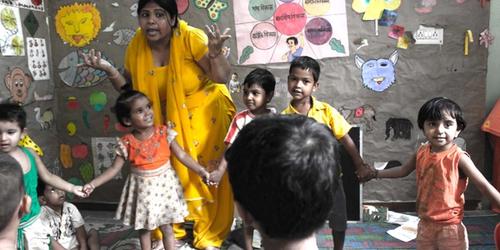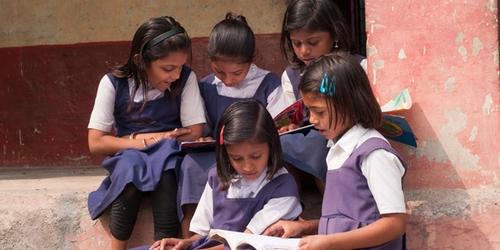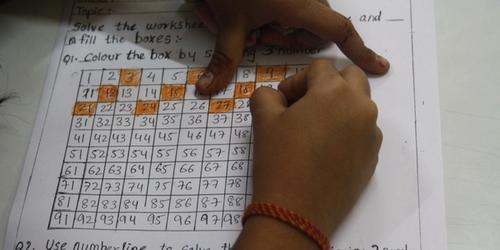Research and Evidence
We have curated research and evidence on Foundational Literacy and Numeracy
Pedagogy

USAID landscape Report on Early Grades’ Literacy
The goal of this landscape report is to review and summarize available empirical evidence on early grade literacy acquisition and instruction in developing countries. The review also clearly indicated that the vast majority of topical areas within the field of literacy in developing country contexts still lack rigorous evidence, and there is much work to be done.

Effectiveness of Teachers’ Guides in the Global South: Scripting, Learning Outcomes, and Classroom Utilization
This report presents the results of RTI International Education’s study on teachers’ guides across 13 countries and 19 projects. Using quantitative and qualitative methods, the report examines how teachers’ guides across the projects differ and find substantial variation in the design and structure of the documents.
Data and Use of Evidence

Does the Government’s Monitoring of Schools Work? A Study of the Frontline Education Bureaucracy in India
This study attempts to understand the effectiveness of education governance, specifically the monitoring function, through the perspectives of frontline officials in India. It locates institutions within social and political structures marked by deep inequalities and analyses the manner in which these institutional arrangements influence the behaviour of frontline officials.

How to Improve Education Outcomes Most Efficiently?
Learn and compare about the the effectiveness (and cost-effectiveness, where cost is available) of interventions from 150 impact evaluations across 46 countries.
Systems and Stakeholders

Education Reform Support Today
This paper takes an updated look at the Education Reform Support series and attempts to consolidate many of its theories, frameworks,and operational guidelines. Ten years of experience have reconfirmed the ideas on which ERS was founded and have added a multitude of examples to show how strategically targeted and opportunistic support can move a reform agenda forward.

Why We Need to Prioritise Universal, Early, Conceptual and Procedural Mastery of Foundational Skills
The paper highlights the need for a sharper focus on foundational skills in light of school closures due to COVID-19 as many primary-school-aged children would have missed critical foundational learning while out of school. This could ensure that short term learning losses do not compound into larger, long term cumulative losses.
EdTech for FLN

Can Schools Enable Parents to Prevent Summer Learning Loss? A Text Messaging Field Experiment to Promote Literacy Skills
This study explores the potential of enabling parents to provide literacy development opportunities at home as a low-cost alternative. A randomized field trial of a summer text-messaging pilot program was conducted for parents focused on promoting literacy skills among first through fourth graders.

Does EdTech Substitute for Traditional Learning?
Because of the rapid expansion of EdTech as a substitute for traditional learning around the world and against the backdrop of full-scale temporary substitution due to the coronavirus pandemic, this study explores the educational production function by using a large randomized controlled trial that varies dosage of computer-assisted learning (CAL) as a substitute for traditional learning.